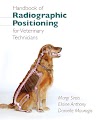Free Download Laboratory Animal Nutrition Full Pdf
By Veterinary Knowledge Facebook Page
Size 1.9 MB
Pages (Only 53 Pages )
Language ( English )
Book ( About Laboratory Animal Nutrition )
👉 Laboratory Animal Nutrition:
Laboratory animal nutrition is a specialized field dedicated to providing appropriate dietary requirements for animals used in research environments. The primary aim is to ensure that laboratory animals receive balanced nutrition to support their health, reproduction, and research outcomes.
Key Aspects:
1. Species-Specific Diets: Each species of laboratory animal has distinct nutritional needs. Diets must be customized to fulfill the specific requirements of each species.
2. Nutrient Composition: Laboratory animal diets typically consist of carbohydrates, proteins, fats, vitamins, minerals, and water. These nutrients are meticulously formulated to replicate the animals' natural diets and fulfill their physiological demands.
3. Ingredient Quality: Utilizing high-quality ingredients is crucial for formulating laboratory animal diets. Ingredients should be uncontaminated and offer essential nutrients in easily absorbable forms.
4. Balanced Formulations: Diets are carefully designed to provide the appropriate balance of nutrients, considering factors like age, sex, reproductive status, and research goals.
5. Special Considerations: Some laboratory animals may require unique nutritional considerations or have dietary sensitivities. For instance, rodents might need additional fiber for gastrointestinal health, while non-human primates may require diets enriched with specific vitamins or minerals.
6. Hydration: Adequate hydration is vital for the health and well-being of laboratory animals. Clean, accessible water free from contaminants should always be provided.
7. Monitoring and Adjustment: Regular monitoring of nutritional status through methods like body weight measurements, food intake observations, and biochemical analyses is essential. Diets may require adjustment based on changes in animals' nutritional requirements or research protocols.
8. Ethical Considerations: Ethical considerations, including exploring alternative dietary sources and minimizing animal discomfort, play a significant role in laboratory animal nutrition practices.
9. Regulatory Compliance: Adhering to relevant regulations and guidelines established by regulatory bodies is critical for laboratory animal nutrition programs. This ensures the welfare of research animals and compliance with ethical standards.
Prioritizing optimal nutrition not only enhances the quality and reproducibility of scientific studies involving laboratory animals but also upholds animal welfare and ethical research practices.
Download Button Are Down Below Just Scroll Down
There Are Some Others Pdfs And Books That You May Also Like 📚📕📒📗📚:
👉 For Field Notes Pdf 📚📗📒📕📚
👉 Click Here 📚📗📒📕📚
👉 Click Here 📚📗📒📕📚
How To Download This PDF:
Just Click On The Download Button And It Bring You To The Google Drive Where You Can Download If From There 🤗 .
👉Join😜









%20(22).jpeg)

%20(28).jpeg)







0 Comments